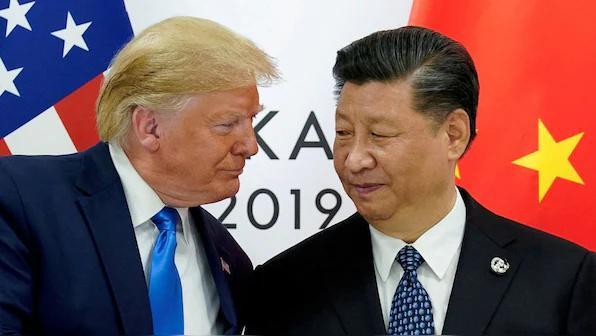
China Refuses to Join Denuclearisation Talks with US & Russia
In a recent development, China has refused to join trilateral denuclearisation talks with the United States and Russia, rejecting President Donald Trump’s call to include Beijing in future negotiations. Chinese Foreign Ministry Spokesperson Guo Jiakun stated that the expectation was “neither reasonable nor realistic” as “China and US are not at the same level at all in terms of nuclear capabilities.”
The decision comes as a significant blow to the diplomatic efforts of the three world powers, who have been engaged in a series of high-level talks aimed at reducing the threat of nuclear war. The US and Russia have been pushing for China to join the negotiations, citing its significant nuclear capabilities and the need for a comprehensive approach to denuclearisation.
In a statement, Guo Jiakun emphasized that China has been working to reduce its nuclear arsenal in accordance with its own national security strategy, and that it is committed to maintaining regional and global stability. However, he stressed that China’s capabilities are vastly different from those of the US and Russia, and that any negotiations would need to take this into account.
The Chinese Foreign Ministry Spokesperson’s comments come amid growing tensions between the US and China over a range of issues, including trade, technology, and security. The two nations have been engaged in a trade war for over a year, with the US imposing tariffs on billions of dollars’ worth of Chinese goods and China retaliating with its own tariffs.
The US has also been critical of China’s military buildup, particularly its development of hypersonic missiles and its expansion of its military presence in the South China Sea. China, on the other hand, has accused the US of seeking to contain its rise and has called for greater cooperation and dialogue between the two nations.
The decision by China to refuse to join denuclearisation talks with the US and Russia is likely to be seen as a significant setback for the diplomatic efforts of the three world powers. The talks have been ongoing for several months, and had been seen as a key step towards reducing the threat of nuclear war.
The US and Russia have been engaged in a series of high-level talks aimed at reducing the threat of nuclear war, including the INF Treaty and the New Strategic Arms Reduction Treaty (New START). The talks have been focused on reducing the number of nuclear weapons held by each nation, as well as limiting the development and deployment of new nuclear weapons.
China has been a key player in the talks, and had been seen as a crucial partner in the efforts to reduce the threat of nuclear war. However, the decision by China to refuse to join the talks is likely to be seen as a significant setback for the diplomatic efforts of the three world powers.
The implications of China’s decision are far-reaching, and are likely to have significant consequences for the global community. The US and Russia have been at odds over a range of issues, including the INF Treaty and the New START, and the decision by China to refuse to join the talks is likely to further complicate the situation.
The decision by China to refuse to join the talks is also likely to have significant implications for the global balance of power. The US and Russia have been the dominant military powers for decades, and the decision by China to refuse to join the talks is likely to further solidify its position as a major military power.
In conclusion, China’s refusal to join denuclearisation talks with the US and Russia is a significant setback for the diplomatic efforts of the three world powers. The decision is likely to have significant implications for the global community, and is likely to further complicate the situation.



